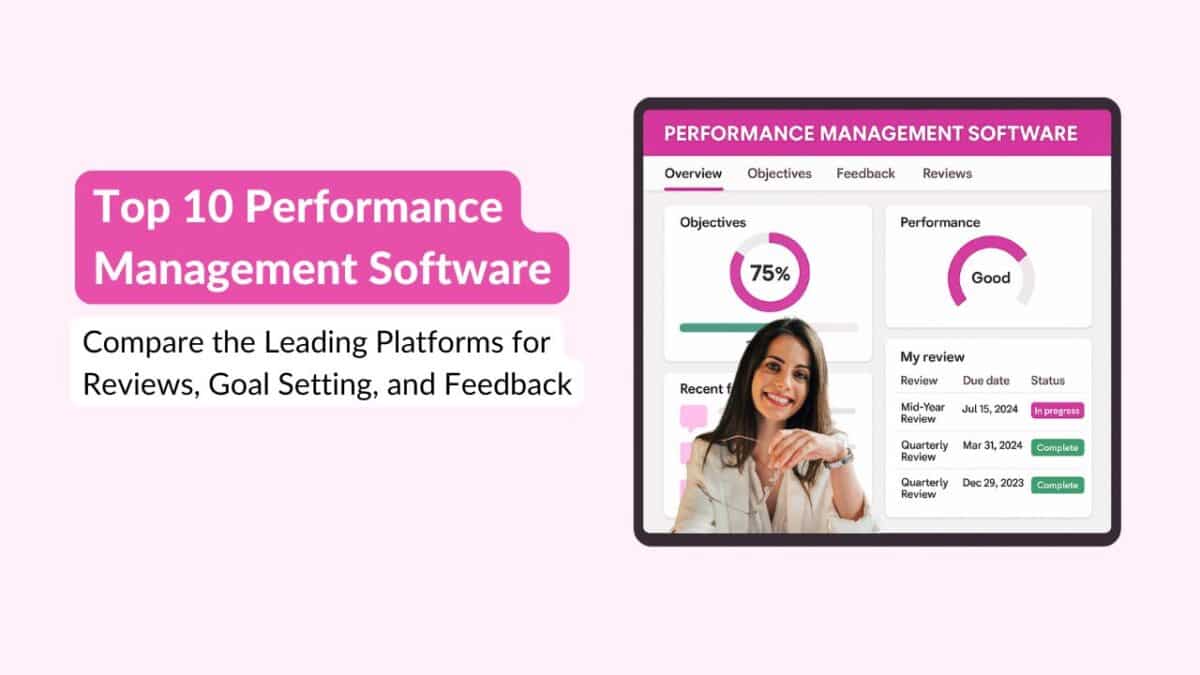Many organizations are now understanding the importance of shifting from traditional performance reviews to more continuous and flexible performance management processes.
While, rethinking performance management is at the top of the agendas of many companies, these few organizations have actually managed to redefine their performance management systems.
1. Kelly Services
Kelly Services (an international staffing firm with approximately 650,000 employees worldwide) transitioned away from a culture of annual performance appraisal because its leaders realized that the performance appraisal process was ineffective and that it wasn’t driving desired results.
Kelly Services needed a performance management system that would evolve into a means of helping the company find and develop talent as a source of competitive advantage, not just a way to ensure compliance. In 2011, Kelly Services dropped annual performance appraisals. It was the first big professional services firm to drop appraisals, and other major firms followed suit, emphasizing frequent and informal feedback.
2. Adobe
Donna Morris, Adobe’s then Senior Vice President Of People’s Resources, found the annual performance review process complex, bureaucratic and paper-heavy because it consumed a lot of time.
Adobe abolished stack ranking and annual performance reviews in 2012 and started using a frequent check-in system that system allows managers and employees to discuss their goals and review their performance on a regular basis. Since Adobe has adopted Check-in, they have claimed to see better results.
Also Read: Understanding Employee Wellbeing In 2021
3. Deloitte
In a public survey Deloitte conducted, more than half the executives questioned (58%) believe that their current performance management approach drives neither employee engagement nor high performance.
They needed something quick, accurate real-time, and more individualized—something that focused on improving future performance.
In 2015, Deloitte made headlines in the April issue of Harvard Business Review, where they said they were redesigning their performance management and listed the changes that their performance management would embrace.
a. no cascading objectives
b. no once-a-year reviews, and
c. no 360-degree-feedback tools.
At Deloitte, their new performance management system has three ways of addressing performance:
Recognizing Performance – Recognizing the contributions of individual employees in each team.
Seeing Performance – Getting an accurate picture of performance without any bias
Fueling Performance – Helping employees improve their performance potential
4. Juniper Systems
Beginning in 2009 Juniper started a process of defining, and articulating, its vision, its brand, values, and aspirations to employees. The annual performance review was not viewed particularly well in engendering trust. Employees wanted more regular feedback, no surprises, and the review decoupled from the pay and bonus allocation process.
Juniper systems eliminated forced rankings and adopted a solution that was more in line with their new performance management perspective.
5. GE
GE is known for its annual performance appraisal process where an employee’s performance at the end of the year was brought down to a number, based on which they were judged and ranked. The employees who fell in the bottom ten percent lost their jobs.
Today, this form of performance appraisal sounds not only harsh but also reductionist. But you’d be surprised to know that not only did GE promote this form of appraisal aggressively, but other organizations also wanted to mimic them. After nearly 30 years, GE did an extremely surprising thing; they discarded their annual performance review process and replaced it with a performance management App that allows frequent feedback
Also Read: Signs That Your HR Department Is Overwhelmed
6. Microsoft
For years Microsoft has used a technique, stack ranking, that effectively encourages workers to compete against each other rather than a collaborative Microsoft that CEO Steve Ballmer was trying to push ahead of his retirement. Stack ranking is a process where each business unit’s management team reviews employees’ performance and ranks a certain percentage of them as top performers, or as average or poorly performing.
Former Microsoft employees have claimed that it bred competition among colleagues, especially when some employees in a group of individuals need to be given poor reviews to match the method. In 2013, Microsoft revamped its performance management by scrapping stack ranking and replacing it with a process that has more emphasis on team collaboration and employee development.
7. Accenture
In 2016, Accenture joined the list of organizations that abandoned annual performance reviews. Six percent of Fortune 500 companies have gotten rid of rankings, according to management research firm CEB. Accenture’s new performance management model is designed to represent the ongoing performance discussions between employees and managers in a better way.
8. Goldman Sachs
In addition to Microsoft, GE, and Adobe (among others), Goldman Sachs has also joined the bandwagon and done away with the rating aspect of the performance review. In 2016, they finally got rid of the once-a-year aspect of the performance review in favor of something that is more timely and continuous.
Do you want to know more about Engagedly? Request for a live demo!
Request A Demo
Author
Srikant Chellappa
CEO & Co-Founder of Engagedly
Srikant Chellappa is the Co-Founder and CEO at Engagedly and is a passionate entrepreneur and people leader. He is an author, producer/director of 6 feature films, a music album with his band Manchester Underground, and is the host of The People Strategy Leaders Podcast.






